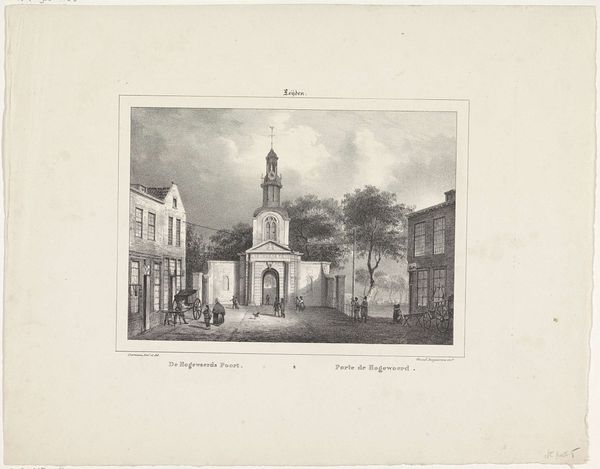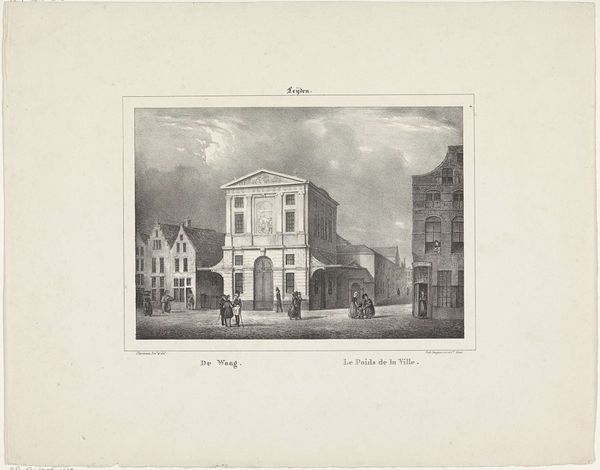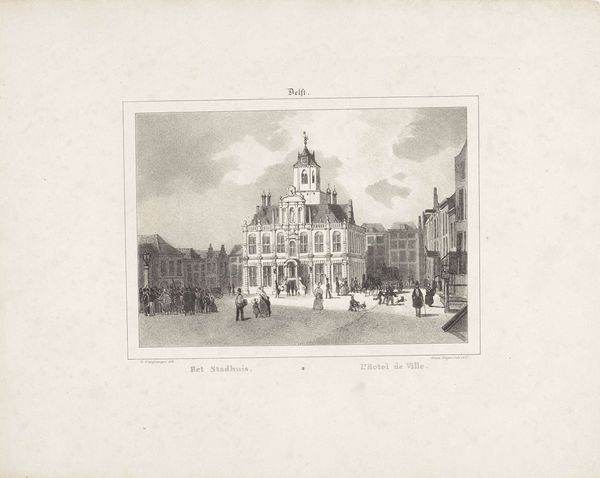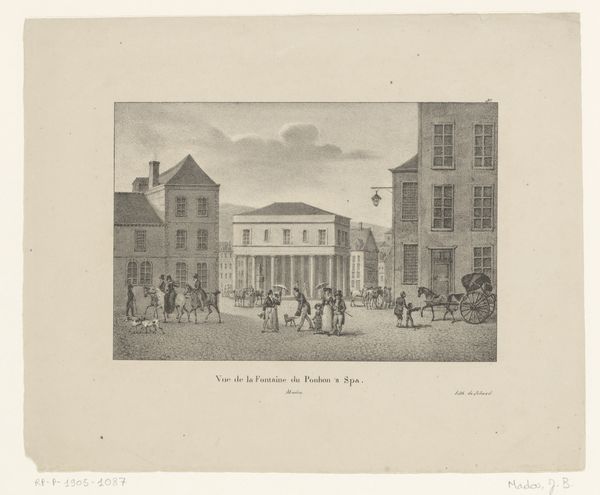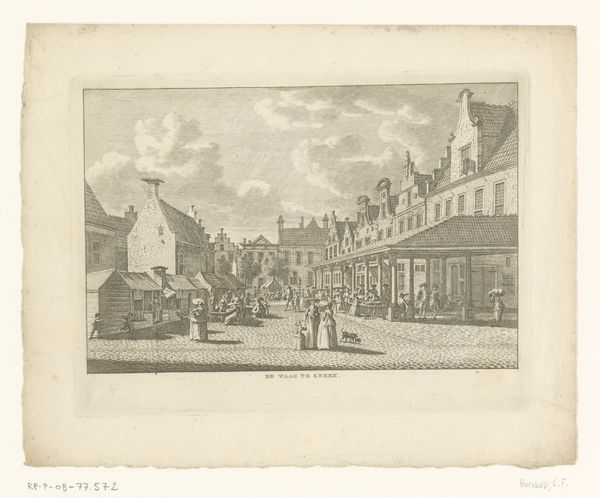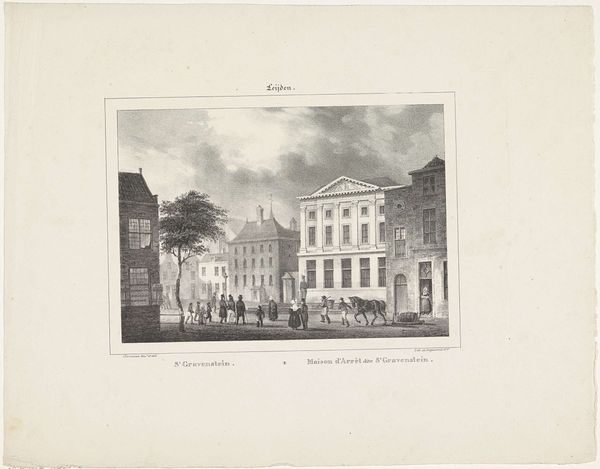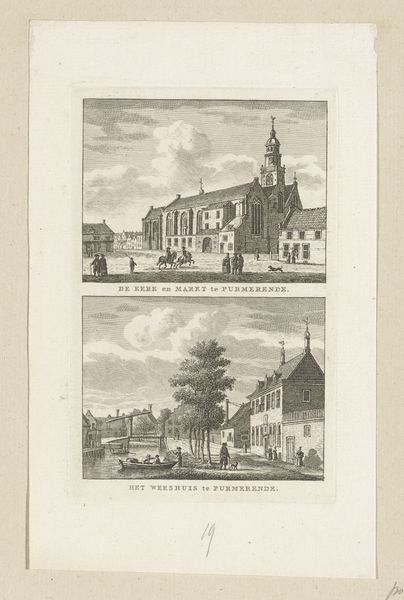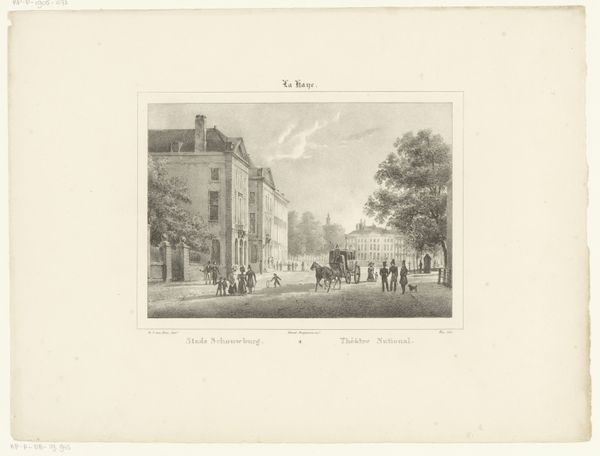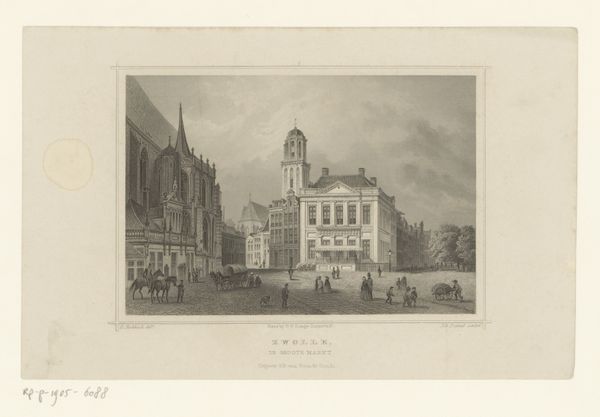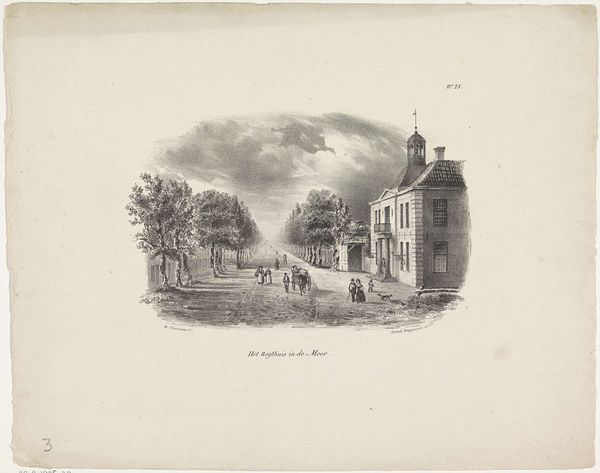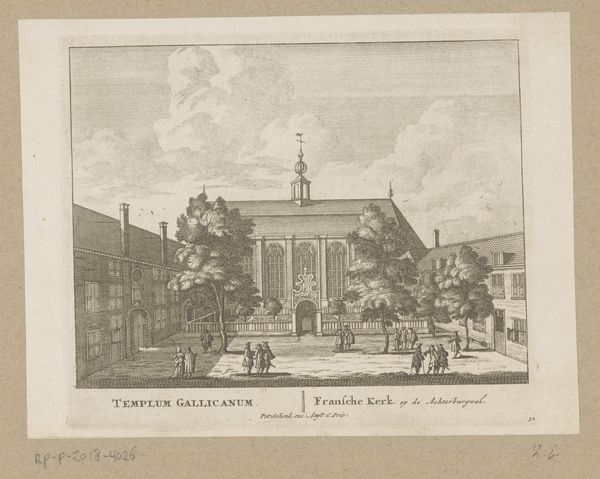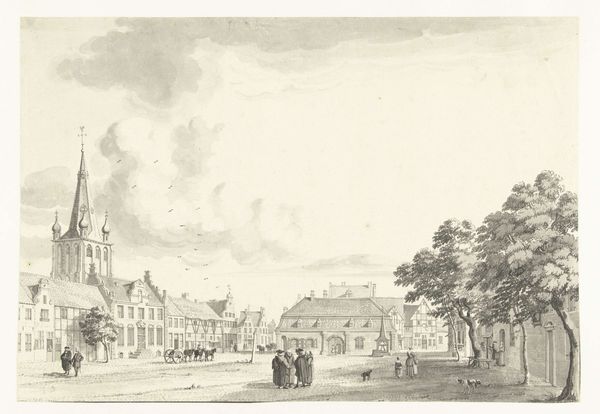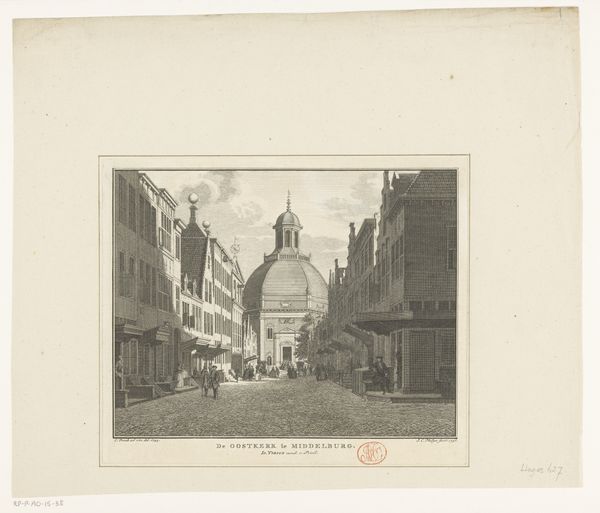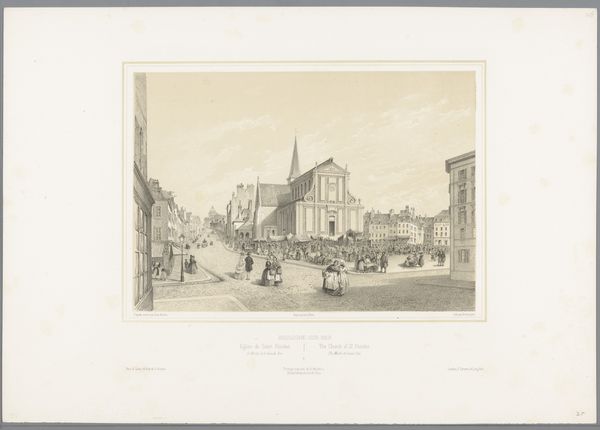
print, engraving
#
16_19th-century
#
neoclassicism
# print
#
old engraving style
#
landscape
#
historical photography
#
cityscape
#
pencil work
#
engraving
Dimensions: height 270 mm, width 348 mm
Copyright: Rijks Museum: Open Domain
This print, "Gezicht op de Witte Poort in Leiden," or “View of the White Gate in Leiden,” was made by J.B. Clermans using a technique called etching. Etching involves coating a metal plate with a waxy, acid-resistant substance, and then drawing through this coating to expose the metal. The plate is then submerged in acid, which bites into the exposed lines, creating grooves. Ink is applied to the plate, filling these grooves, and the surface is wiped clean. Finally, paper is pressed onto the plate, transferring the ink and creating the image. The fine lines and detailed shading we see here are characteristic of etching, allowing for intricate depictions of architecture and figures. It's a process that demands precision, skill, and time. Etching also allowed for the relatively easy reproduction of images, serving a growing market for picturesque views, like this one of Leiden. The print provides not only a scene, but also an artifact, indicative of the labor involved in its making, and the rise of visual culture during this period.
Comments
No comments
Be the first to comment and join the conversation on the ultimate creative platform.
